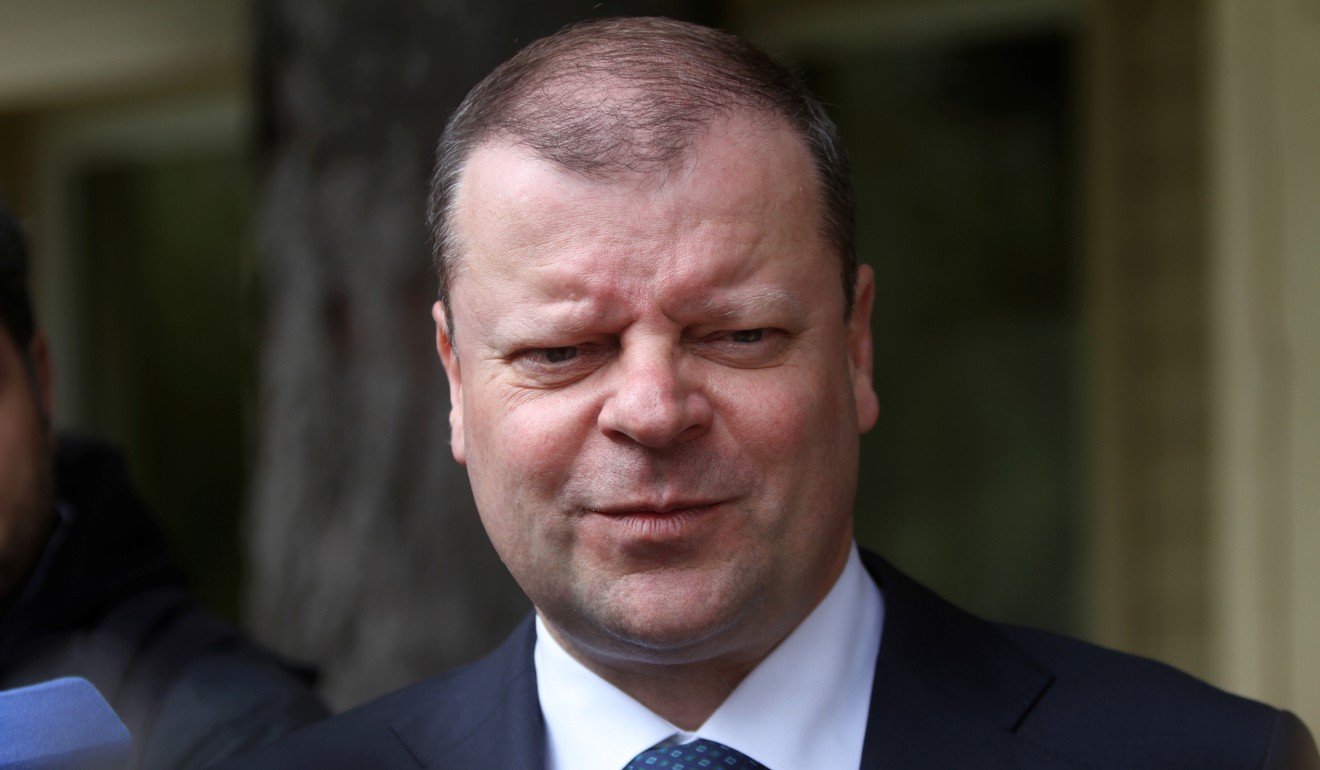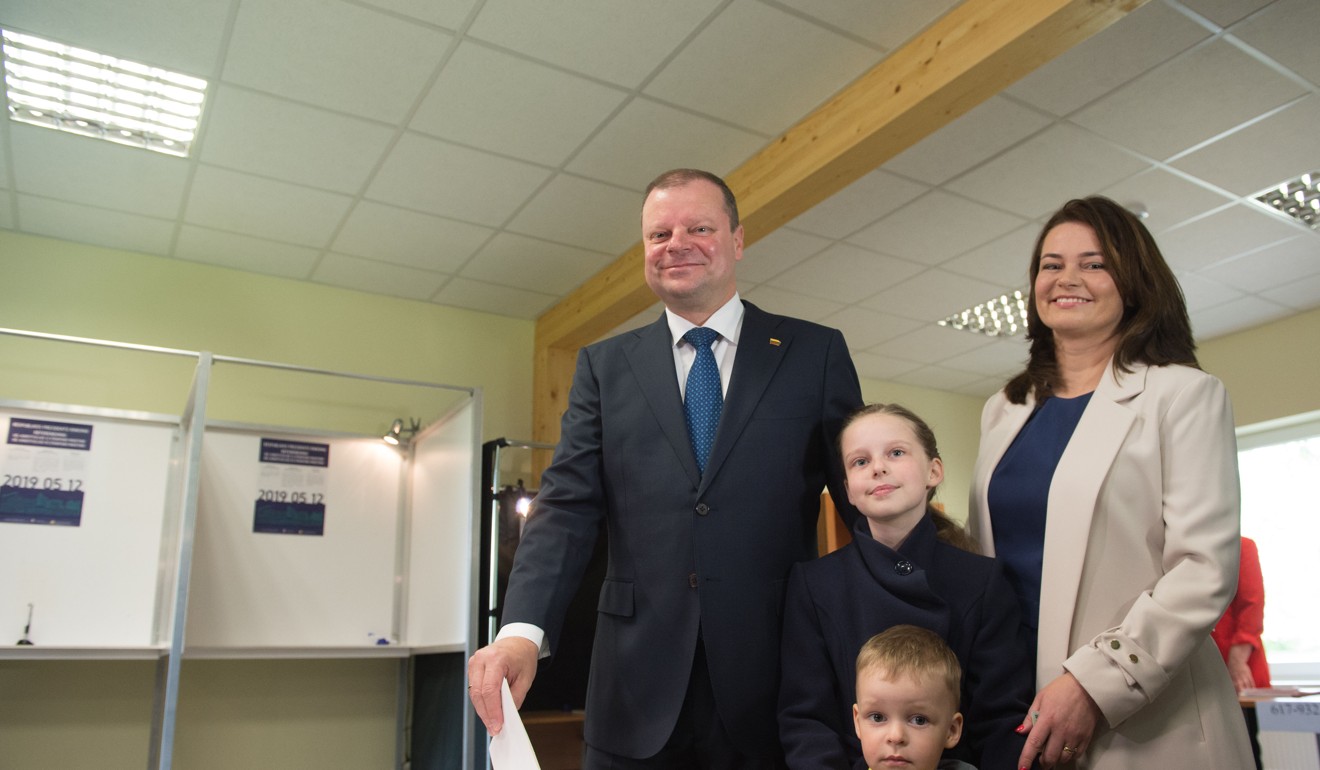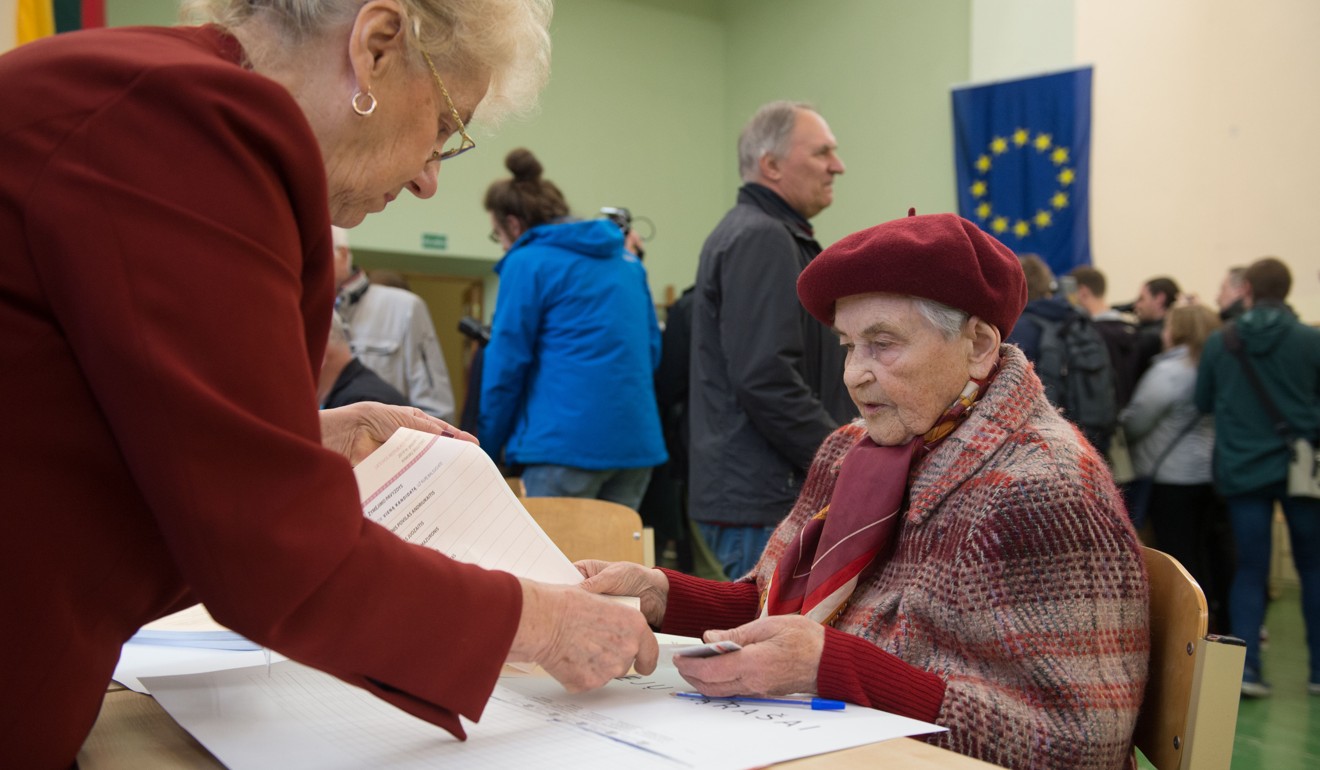
Lithuanians elect new president with inequality and poverty woes at forefront of race
- Nine candidates are vying to succeed two-term independent incumbent Dalia Grybauskaite

Lithuanians voted for a new president on Sunday with concerns over income inequality and poverty dominating round one of a tight race in the Baltic euro zone state.
Voter turnout tallied at 56.45 per cent at the close of voting on Sunday, according to the Central Elections Commission, which also said it expected to publish partial official results in the night or early on Monday.
Nine candidates are vying to succeed two-term independent incumbent Dalia Grybauskaite. The politician nicknamed the “Iron Lady” for her strong resolve has been tipped as a contender to be the next president of the European Council.
But pre-election surveys suggest only three stand a chance of making it to an expected May 26 run-off that would coincide with European Parliament elections.
Centre-left Prime Minister Saulius Skvernelis, conservative ex-finance minister Ingrida Simonyte and independent economist Gitanas Nauseda lead the pack, and each has focused primarily on bread and butter issues.

Simonyte is popular with wealthy, educated urban voters while Skvernelis’ populist approach resonates with the rural poor.
Nauseda, an economist, seeks to bridge the rich-poor divide in the former Soviet republic of 2.8 million people, which joined the EU and Nato in 2004.
The country is struggling with a sharp decline in population owing to mass emigration to western Europe by people seeking a better life.
A recent EU report noted that almost 30 per cent of Lithuanians “are at risk of poverty or social exclusion” and that this risk is “nearly double” in rural areas.
“Citizens are thirsty for social justice and seek a candidate who can bridge existing social polarisation,” Donatas Puslys from the Vilnius Policy Analysis Institute told AFP.
All candidates support EU and Nato membership as bulwarks against neighbouring Russia, especially since its 2014 military intervention in Ukraine.

Lithuanian presidents steer foreign policy, attending EU summits, but must consult the government and the prime minister on appointing the most senior officials.
Robust annual wage growth of around 10 per cent has raised the average gross monthly salary to 970 euros but poverty and income inequality remain among the highest in the EU, largely due to weak progressive taxation.
Unemployment stood at 6.5 per cent in the first quarter of 2019, and the economy is forecast to grow by 2.7 per cent this year, well above an average of 1.1 per cent in the 19-member euro zone.
Brussels has urged Vilnius to use solid growth fuelled mostly by consumption to broaden its tax base and spend more on social policies.
A technocrat who warns against deepening inequality and the rural-urban divide, Simonyte has vowed to reduce it by boosting growth further.
Voting on Sunday in Vilnius Simonyte insisted presidents needed to listen to “different opinions, seek consensus and properly represent Lithuania abroad”.
Socially liberal, Simonyte supports same-sex partnerships.

Seeking stronger anti-corruption measures and faster income growth, Raminta Tubinyte said that Simonyte got her vote.
A former police chief named prime minister after the Farmers and Green Union won general elections in 2016, Skvernelis is courting the disgruntled rural poor.
Skvernelis, 48, has labelled his rivals “elitist” and vowed to fight corruption and continue generous spending “to reduce social exclusion and support families”.
Voting in Vilnius on Sunday, Skvernelis called the election an “assessment” of his work as PM but refused to speculate if he would step down should he fail to enter round two.
Known for financial acumen, independent candidate Nauseda vows to build a “welfare state” and urges greater social dialogue.
A 54-year-old former banking adviser, he has fans among voters seeking an impartial president who remains above political feuds.
Nauseda said he felt a “huge responsibility for there to be less polarisation”, after casting his ballot Friday in early voting.
Vilnius University analyst Kestutis Girnius described Nauseda as “moderate and measured on almost all issues, perhaps too finely so, leading to doubts about what he really believes”.
Nauseda voter Feliksas Markevicius said he wanted the new president to help emigrants to return to Lithuania.
“We need to improve living conditions because many people are forced to work abroad,” the pensioner told AFP after voting in Vilnius.